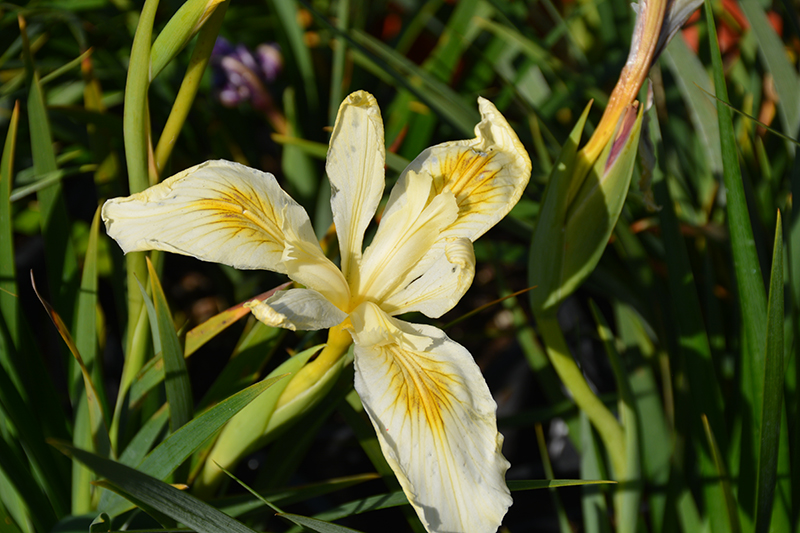Banana Cream Pie Iris
Iris x douglasiana 'Banana Cream Pie'
Plant Height: 12 inches
Flower Height: 16 inches
Spacing: 30 inches
Sunlight:
![]()
![]()
Hardiness Zone: 7a
Other Names: Hybrid Douglas Iris
Group/Class: Pacific Coast Hybrids
Description:
This hybrid of native varieties does well in coastal environments, but also thrives elsewhere with some attention; bright banana yellow blooms with cream edges and a pinkish blush, over clumping green foliage; great as a low groundcover
Ornamental Features
Banana Cream Pie Iris features showy yellow flag-like flowers with creamy white overtones and gold veins at the ends of the stems from early to late spring. The flowers are excellent for cutting. Its sword-like leaves remain dark green in color throughout the season.
Landscape Attributes
Banana Cream Pie Iris is an herbaceous perennial with an upright spreading habit of growth. Its relatively fine texture sets it apart from other garden plants with less refined foliage.
This plant will require occasional maintenance and upkeep, and should be cut back in late fall in preparation for winter. Deer don't particularly care for this plant and will usually leave it alone in favor of tastier treats. Gardeners should be aware of the following characteristic(s) that may warrant special consideration;
- Insects
Banana Cream Pie Iris is recommended for the following landscape applications;
- Mass Planting
- Border Edging
- General Garden Use
- Groundcover
- Naturalizing And Woodland Gardens
Planting & Growing
Banana Cream Pie Iris will grow to be about 12 inches tall at maturity extending to 16 inches tall with the flowers, with a spread of 3 feet. When grown in masses or used as a bedding plant, individual plants should be spaced approximately 30 inches apart. It grows at a medium rate, and under ideal conditions can be expected to live for approximately 10 years. As an herbaceous perennial, this plant will usually die back to the crown each winter, and will regrow from the base each spring. Be careful not to disturb the crown in late winter when it may not be readily seen!
This plant does best in full sun to partial shade. It is very adaptable to both dry and moist locations, and should do just fine under typical garden conditions. It is considered to be drought-tolerant, and thus makes an ideal choice for a low-water garden or xeriscape application. This plant does not require much in the way of fertilizing once established. It is not particular as to soil type or pH, and is able to handle environmental salt. It is somewhat tolerant of urban pollution. This particular variety is an interspecific hybrid. It can be propagated by division; however, as a cultivated variety, be aware that it may be subject to certain restrictions or prohibitions on propagation.
